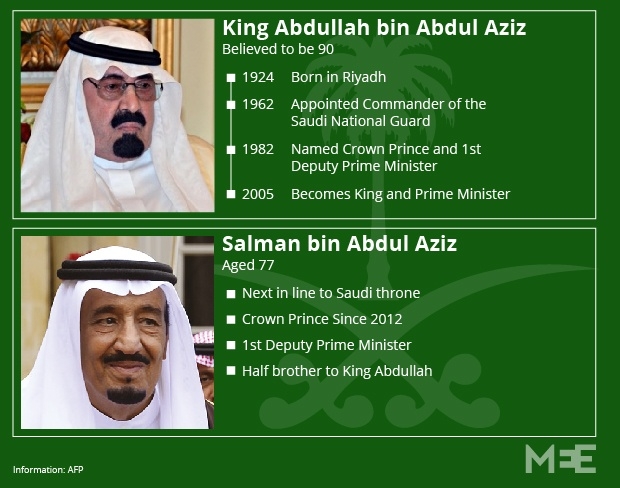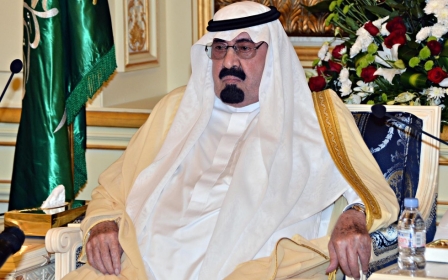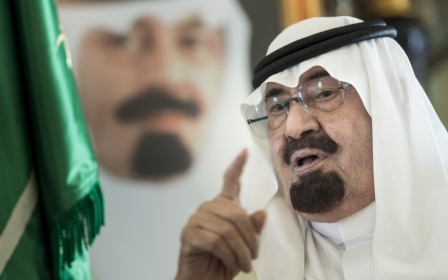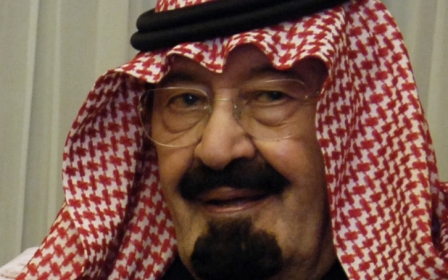Saudi king's ill health rekindles concerns over succession
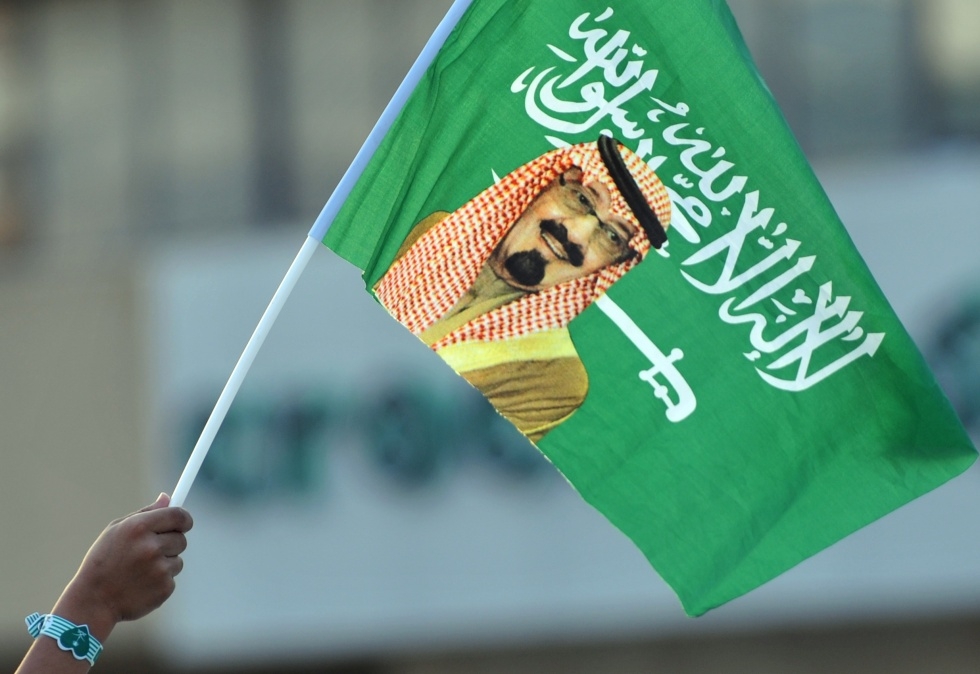
Speculation over the succession of Saudi Arabia's King Abdullah has resurfaced in the kingdom following news that the monarch is suffering from pneumonia and breathing with the aid of a tube.
The king's absence from the public gaze for some time last year prompted rumours on social media networks that his health was deteriorating.
He underwent two operations in October 2011 and November 2012 to correct "ligament slackening" in his upper back.
However, concerns over his health were rekindled when the long-ailing king, who is believed to be around 90 years old, was admitted to the King Abdulaziz Medical City in Riyadh on Wednesday for health checks.
An examination "revealed pneumonia, which required the provisional insertion of a tube on Friday evening," a statement by the royal court said on Friday.
"Thanks be to God, that step was crowned with stability and success," the statement added, not mentioning how long the king will need to remain in hospital.
However, some in Saudi Arabia are questioning the court's official narrative.
A Twitter activist who goes under the pseudonym 'Mujtahidd', and who has in the past accurately leaked information from inside the royal palace, claimed that the king has returned to hospital.
[Translation: The king was in his palace until dawn today, following his voluntary departure from hospital, but his health became worse – he was nearing death, and so was taken back to hospital, where they inserted the tube and breathing apparatus.]
In an earlier tweet, Mujtahidd posted links to medical images of the procedure he claimed was currently being used to help the king breathe. The procedure known as endotracheal intubation can only be performed under general anaesthetic, so that , if the information the Saudi tweeter provided is correct, it means that the King is currently unconscious.
His advanced age and poor health have raised concerns about the future leadership of one of the world's key oil producers.
Abdullah's half-brother Salman, 77, is next in line to the throne. He was named crown prince in June 2012 following the death of Prince Nayef bin Abdul Aziz.
Salman has recently been representing the king at most recent public events, including last month's Gulf summit in Qatar, because of the monarch's ailing health.
However, Salman himself is reportedly suffering from dementia.
The Saudi stock market dropped by about five percent at one point following the royal court's announcement that the king had been hospitalised, before clawing back some of its losses to finish the day on Wednesday 1.8 percent lower.
The market was closed for the weekend on Friday.
Since the death in 1952 of King Abdul Aziz al-Saud, the founder of Saudi Arabia, the throne has systematically passed from one of his sons to another, as well as to brothers and half-brothers.
But many of Abdul Aziz's sons are aging or have already died. Abdullah's former crown princes Sultan and Nayef died in 2011 and 2012 respectively.
In March 2014, King Abdullah named his half-brother Prince Moqren – who was born in 1945 and is the youngest of Abdul Aziz's sons - as a second crown prince.
The announcement provoked controversy, however, due to both its unprecedented nature and Muqrin's heritage.
"Muqrin will potentially be the weakest king in Saudi history," said one anonymous Saudi official to the Washington Post. "He is not from the first ranks of the royal family, he has no constituency and he will have to ride herd on a lot of powerful princes."
New MEE newsletter: Jerusalem Dispatch
Sign up to get the latest insights and analysis on Israel-Palestine, alongside Turkey Unpacked and other MEE newsletters
Middle East Eye delivers independent and unrivalled coverage and analysis of the Middle East, North Africa and beyond. To learn more about republishing this content and the associated fees, please fill out this form. More about MEE can be found here.



